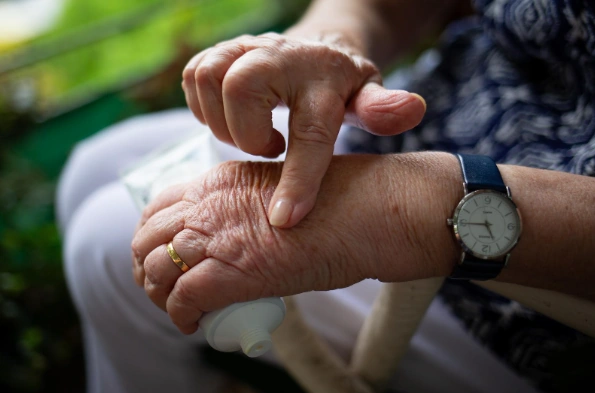
As people get older they find it hard to admit that they need assistance. Seniors have a strong desire to remain independent and retain control of their own lives for as long as possible. It’s not uncommon for an older adult to hide or downplay any issues they experience until an accident or sudden decline in their health make it clear that they need assistance. Often, adult children are unable to participate in making care decisions before a crisis takes place.
If you want to reduce the risk of being caught off-guard, you should start regularly monitoring your parents mental and physical abilities. Ideally, this should be done in person, but another option is to use medical alert devices. In addition, encourage them to make legal and financial plans, and research long-term care options.
Evaluating Your Parent’s Ability to Age in Place
Your parent’s decline may be very gradual and is often very subtle. If you don’t live nearby or see them very often, picking up on the clues can be challenging.If you’re only just starting to think that your parents may need additional help with the daily activities of living, such as bathing, cleaning, dressing, and meal preparation, it’s time for an assessment.
A number of warning signs will indicate that an aging or elderly person needs help. Start to pay closer attention and watch for the following subtle clues.
Memory and Cognitive Problems
It’s very common for older adults to experience periodic memory problems. Even younger adults can occasionally forget where they put their car keys. The difficulty arises when the memory problems become more frequent or recurring. It could be a warning sign of the onset of dementia or Alzheimer’s disease.When a parent forgets where they are or where they live, regularly forgets to take their medication or turn off the stove, it could be time to seek additional help for them.
Warning signs that indicate a more serious decline include:
- Sudden changes in sleeping patterns in general
- Sleeping most of the day
- Missing commitments and appointments
- Forgetfulness or confusion when performing familiar tasks
- Not recognising familiar people
- Forgetting to take medications or taking the wrong dose
- Using poor judgment
- Decreased interest in activities and hobbies they once enjoyed
- Frequent fatigue
- Depression or sadness
Changes in Physical Capabilities
There are many chronic health conditions that can lead to a steady decline in physical function. Arthritis, for example, makes walking up and down stairs difficult. Dressing and preparing meals can also become a challenge. If a person is suffering with heart disease, it can make cleaning their home or maintaining their lawn overly strenuous.If your aging parent has a chronic health condition, educate yourself. Find out about the symptoms and how they may impact their ability to perform everyday tasks. Look for:
- Balance problems
- Difficulty navigating narrow hallways or stairs
- Problems getting up from sitting down
- Expressions of pain or limping when moving
- Falls and slips
- Unexplained injuries or bruising
- Significant weight loss or sudden loss of appetite
- Decline in hearing or vision
- Poor personal hygiene which may indicate they are having problems showering
- A dirty or cluttered home
- Lack of fresh food in the refrigerator
- Piles of dirty laundry
- Stacks of unopened mail or unpaid bills
What to do if You Think Your Parent Needs Help
If you have your concerns about your parents and think they need additional help, it’s not going to be an easy conversation, but it’s one you’ve got to have. It’s only natural that they won’t want to give up their independence and you might also find it difficult to acknowledge that they require someone to help care for them.While the conversation might be difficult, it’s not something you can do anything about without their consent. You also need to ensure their needs are adequately met and their wishes respected as much as possible.
As soon as you notice some of the warning signs, it might be a good idea to talk to your parent’s healthcare provider. There could be a medical condition or medication side effects that will explain the symptoms you’ve spotted.
Once all possible causes have been ruled out, it’s time to consider seeking additional help for your parents. Their healthcare provider may be able to offer some advice on what’s available. There are also a number of aging agencies that will connect you with resources or arrange a needs assessment for your parents.
When you’ve got all the necessary information, you’ll be in a better position to help your parents in making the right decision about their care.